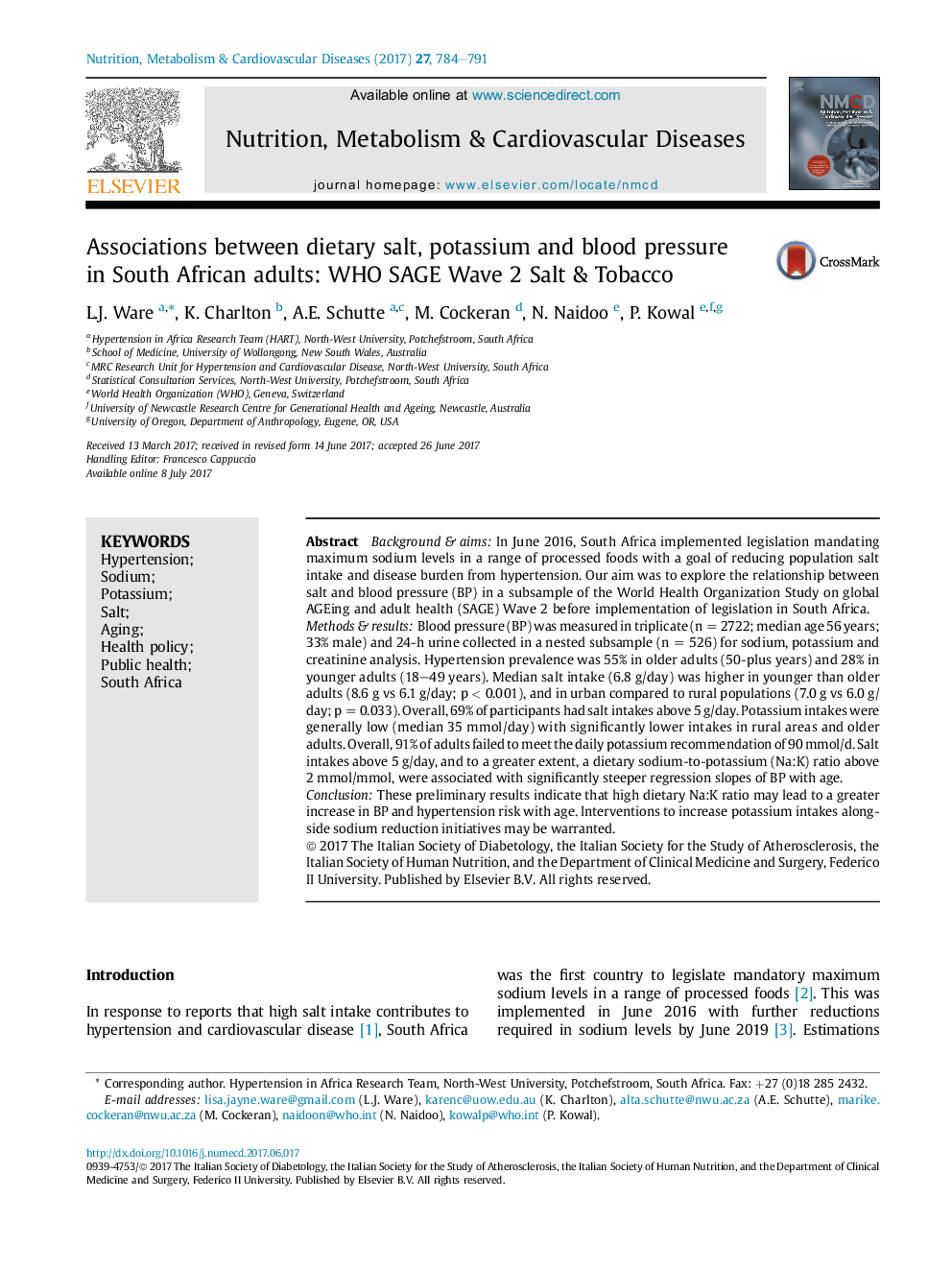| کد مقاله | کد نشریه | سال انتشار | مقاله انگلیسی | نسخه تمام متن |
|---|---|---|---|---|
| 5619077 | 1406052 | 2017 | 8 صفحه PDF | دانلود رایگان |

- South Africa's new health legislation aims to reduce sodium intake & hypertension rates.
- Pre-legislation data shows most adults (69%) consume more than 5Â g salt/day.
- Additionally, 91% of adults fail to meet daily dietary potassium requirements.
- Sodium-to-potassium ratio had a greater impact than salt on age-related blood pressure.
- Strategies should be considered to increase potassium alongside sodium reduction initiatives.
Background & aimsIn June 2016, South Africa implemented legislation mandating maximum sodium levels in a range of processed foods with a goal of reducing population salt intake and disease burden from hypertension. Our aim was to explore the relationship between salt and blood pressure (BP) in a subsample of the World Health Organization Study on global AGEing and adult health (SAGE) Wave 2 before implementation of legislation in South Africa.Methods & resultsBlood pressure (BP) was measured in triplicate (n = 2722; median age 56 years; 33% male) and 24-h urine collected in a nested subsample (n = 526) for sodium, potassium and creatinine analysis. Hypertension prevalence was 55% in older adults (50-plus years) and 28% in younger adults (18-49 years). Median salt intake (6.8 g/day) was higher in younger than older adults (8.6 g vs 6.1 g/day; p < 0.001), and in urban compared to rural populations (7.0 g vs 6.0 g/day; p = 0.033). Overall, 69% of participants had salt intakes above 5 g/day. Potassium intakes were generally low (median 35 mmol/day) with significantly lower intakes in rural areas and older adults. Overall, 91% of adults failed to meet the daily potassium recommendation of 90 mmol/d. Salt intakes above 5 g/day, and to a greater extent, a dietary sodium-to-potassium (Na:K) ratio above 2 mmol/mmol, were associated with significantly steeper regression slopes of BP with age.ConclusionThese preliminary results indicate that high dietary Na:K ratio may lead to a greater increase in BP and hypertension risk with age. Interventions to increase potassium intakes alongside sodium reduction initiatives may be warranted.
Journal: Nutrition, Metabolism and Cardiovascular Diseases - Volume 27, Issue 9, September 2017, Pages 784-791